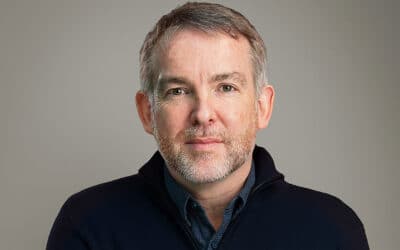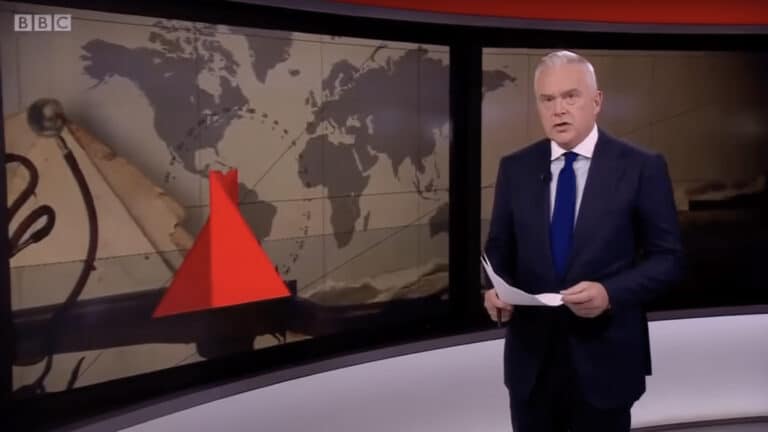A small number of BBC stars and managers “behave unacceptably” at work, but there is not a widespread “toxic” culture at the organisation, a report commissioned by the BBC in the wake of the Huw Edwards scandal has found.
The review did however conclude that “a minority of people” behave badly and their “behaviour is not addressed.”
The BBC said it would introduce reforms, and chairman Samir Shah said he would draw “a line in the sand.”
He told presenters: “After today, let me state it clearly, if you think you’re too big a star or too important to live by the values of this organisation, not only are you wrong, but we will find you out.”
Shah said the report addressed “some deep-seated issues,” and that people who behave badly and make life “unbearable” for colleagues have no place at the corporation.
He added: “There is a minority of people whose behaviour is simply not acceptable” and that “there are still places where powerful individuals on and off screen can abuse that power…
“…The report makes several recommendations that prioritise action over procedural change, and that is exactly right. It also addresses some deep-seated issues, for example, the need to make sure everyone can feel confident and not cowed about speaking up.”
The report heard from 2,500 BBC staff members and freelancers, and concluded that the corporation does not have a toxic culture overall, and that many workers feel the culture has improved in recent years.
“These people work in both on and off-air roles, dotted across the organisation in different functions and departments. They are often in positions where power could be abused,” the report said.
“Even though they are small in number, their behaviour creates large ripples which negatively impact the BBC’s culture and external reputation.”
The BBC has shown “inconsistent execution when it comes to dealing with poor performance and bad behaviour” over the years, it said.
Most presenters were “seen as good to work with and respectful”, the report added.
But the authors heard “examples of well-known names not being held to account for poor behaviour.”
The report did not name anyone accused of bad behaviour, but did say the names of some presenters were mentioned separately by several different employees.
BBC director general Tim Davie welcomed the “clear, practical recommendations that we are committed to implementing at pace.”
READ MORE: BBC Sport hits the socials to find its next star football pundit
The BBC’s reforms include:
- A more robust disciplinary policy
- A strengthened code of conduct
- Improved mechanisms for staff to complain without the fear of reprisals
- A “Call it Out” campaign to “promote positive behaviour” and allow staff to speak up
- A hotline to make complaints
- Updated contracts for new employees “to set out clear expectations around behaviour”
Paul Siegert, NUJ national broadcasting organiser, welcomed the planned reforms: “It’s vitally important that the country’s largest public service broadcaster is a safe place to work and people can not only thrive and be creative, but feel able to call out bad behaviour, whether it be bullying, sexual harassment or an abuse of power. Previously, on too many occasions, senior managers have turned a blind eye to inappropriate behaviour,” he said.
“The six recommendations drawn up by Change Associates are just a start. We of course welcome the call to reset BBC values. But too often in the past, power imbalances have affected decision making and that must not be allowed to continue. Everyone, regardless of their role, must be treated the same and must be made to feel that they can report bad behaviour when they see or hear it. We welcome the BBC’s commitment to hold everyone to account and we will do all we can to hold the BBC to account.”
The corporation announced the review in the wake of revelations about Edwards, its most senior news presenter, who committed offences involving child abuse images.
Separately, some BBC staff members had accused Edwards of sending them flirtatious and “pushy” private messages, and one said he was treated “like this God of news” who was “allowed to feel like he could get away with anything”.
In August, the BBC board said recent events had “put a spotlight on the question of power imbalances in the workplace”.
They were “concerned about the potential for inappropriate workplace behaviour, particularly in creative and editorial environments”, they said.
The new report comes 12 years after a previous review was held following the Jimmy Savile scandal, which suggested there was “a strong undercurrent of fear” at the BBC when addressing issues of bullying.
The past year has seen a string of allegations about BBC presenters, and questions raised about how the corporation has dealt with them.
In January, the BBC apologised to staff who felt they could not speak up with concerns about Russell Brand’s behaviour. Then in February, the BBC board apologised over “missed opportunities” to tackle “bullying and misogynistic behaviour” by former Radio 1 DJ Tim Westwood.
Jermaine Jenas, who presented The One Show and appeared on Match of the Day, was sacked last summer following complaints about workplace conduct.
Gregg Wallace stepped aside as Masterchef co-host after allegations including inappropriate sexual comments by 13 people who worked with him, which he has said are “not all true.”
Two Strictly Come Dancing professionals also did not return for last year’s series following complaints which were partially upheld.














